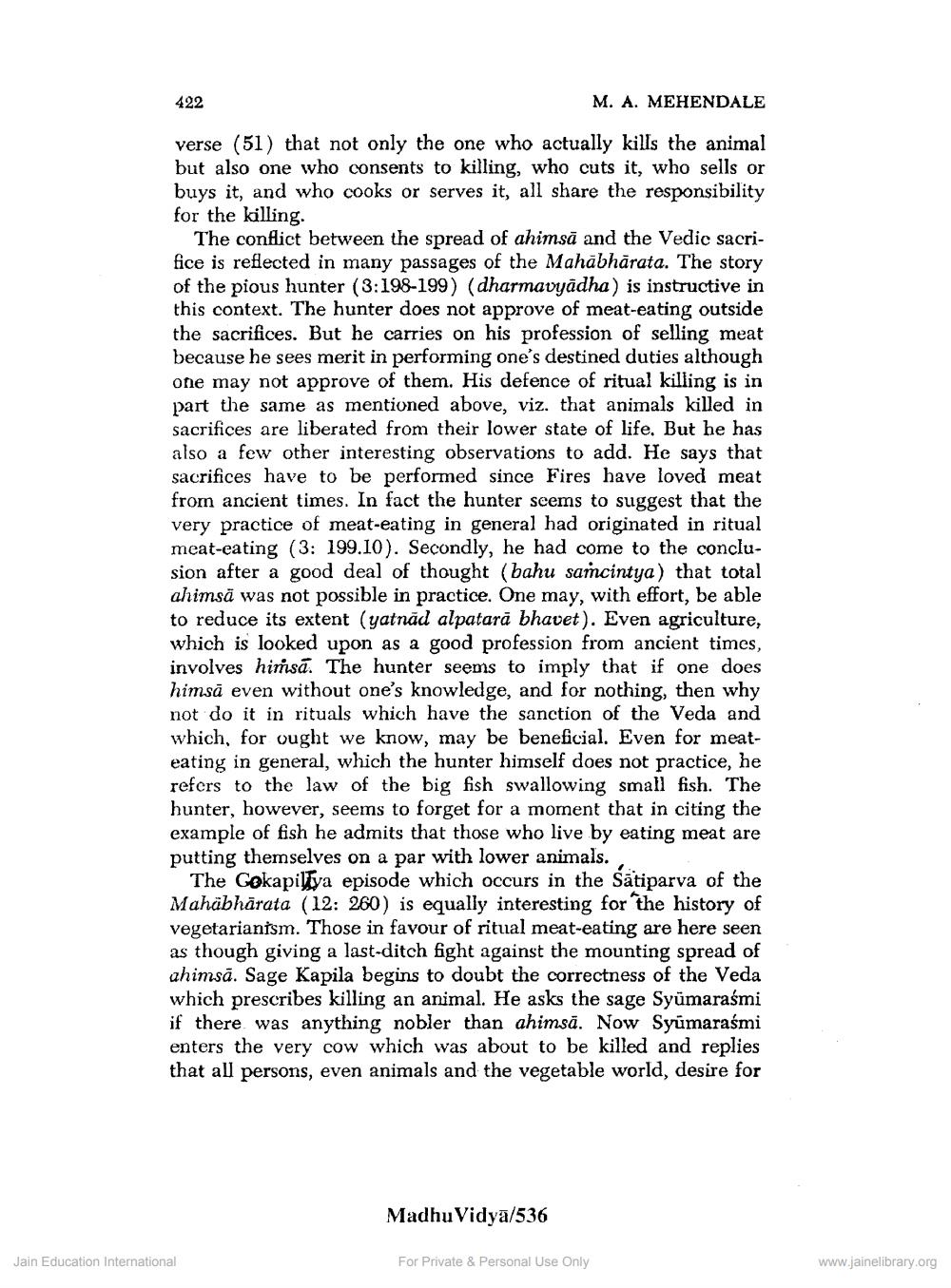________________
M. A. MEHENDALE
verse (51) that not only the one who actually kills the animal but also one who consents to killing, who cuts it, who sells or buys it, and who cooks or serves it, all share the responsibility for the killing.
The conflict between the spread of ahimsa and the Vedic sacrifice is reflected in many passages of the Mahabharata. The story of the pious hunter (3:198-199) (dharmavyādha) is instructive in this context. The hunter does not approve of meat-eating outside the sacrifices. But he carries on his profession of selling meat because he sees merit in performing one's destined duties although one may not approve of them. His defence of ritual killing is in part the same as mentioned above, viz. that animals killed in sacrifices are liberated from their lower state of life. But he has also a few other interesting observations to add. He says that sacrifices have to be performed since Fires have loved meat from ancient times. In fact the hunter seems to suggest that the very practice of meat-eating in general had originated in ritual meat-eating (3: 199.10). Secondly, he had come to the conclusion after a good deal of thought (bahu samcintya) that total ahimsa was not possible in practice. One may, with effort, be able to reduce its extent (yatnad alpatara bhavet). Even agriculture, which is looked upon as a good profession from ancient times, involves himhsa. The hunter seems to imply that if one does himsa even without one's knowledge, and for nothing, then why not do it in rituals which have the sanction of the Veda and which, for ought we know, may be beneficial. Even for meateating in general, which the hunter himself does not practice, he refers to the law of the big fish swallowing small fish. The hunter, however, seems to forget for a moment that in citing the example of fish he admits that those who live by eating meat are putting themselves on a par with lower animals.
The Gokapilya episode which occurs in the Satiparva of the Mahabharata (12: 260) is equally interesting for the history of vegetarianism. Those in favour of ritual meat-eating are here seen as though giving a last-ditch fight against the mounting spread of ahimsa. Sage Kapila begins to doubt the correctness of the Veda which prescribes killing an animal. He asks the sage Syümaraśmi if there was anything nobler than ahimsa. Now Syumaraśmi enters the very cow which was about to be killed and replies that all persons, even animals and the vegetable world, desire for
422
Jain Education International
Madhu Vidya/536
For Private & Personal Use Only
www.jainelibrary.org




